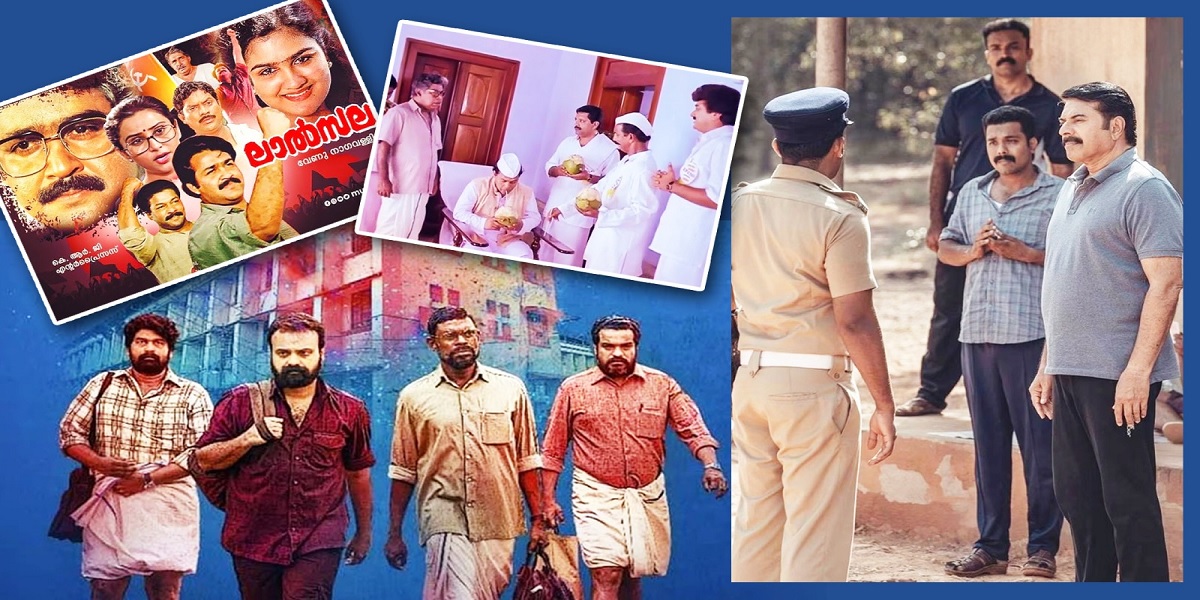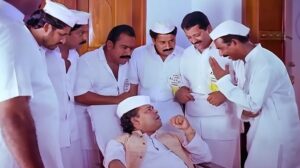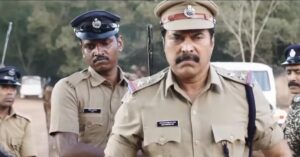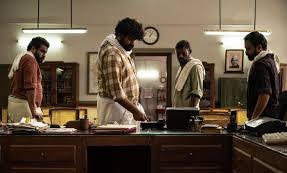Published Apr 08, 2025 | 6:00 PM ⚊ Updated Apr 23, 2025 | 8:43 PM

While some films did invite protests, Kerala has largely allowed its filmmakers the creative freedom to critique, mock, and provoke without the fear of censorship or political vendetta.
Synopsis: A look back at some cult classics that fearlessly ventured into sensitive territories, films that not only entertained, but also questioned, unsettled, and transformed the political consciousness of their times.
Malayalam films have always been more than just entertainment, it’s a mirror that reflects Kerala society; a voice that questions power and a space where the bold and the forbidden find expression. Mohanlal-starrer Empuraan has become the latest flashpoint in this tradition, not just for its cinematic ambition but for the political fire it stokes.
Amidst a storm of controversies, including Enforcement Directorate (ED) raids on producer Gokulam Gopalan and Income Tax (IT) notices to director Prithviraj and producer Antony Perumbavoor, the film stands as a symbol of resistance, suggesting that those who raise their voices against the current BJP-led Union government is at the risk of being silenced through central agency probes.
However, is Empuraan the first film to walk this path between politics and art? Absolutely not. Malayalam cinema has a proud legacy of confronting uncomfortable truths, be it exposing corruption, dissecting caste hierarchies, or offering scathing portraits of minister’s personal lives.
While some films did invite protests, Kerala has largely allowed its filmmakers the creative freedom to critique, mock, and provoke without the fear of censorship or political vendetta.
Let’s take a look back at some cult classics that fearlessly ventured into sensitive territories, films that not only entertained, but also questioned, unsettled, and transformed the political consciousness of their times.

Central to the narrative were figures inspired by legendary leaders like T.V. Thomas and K.R. Gowri Amma. (Img-Mathrubhumi Archives)
In December 1990, during a festive Christmas break, Kerala witnessed the rise of a cinematic and political phenomenon, Lal Salam.
The movie, which hit theatres just before the district council elections, quickly became more than just a film. Its dialogues, especially the iconic “Beediyundo sakhave oru theepatti edukkan” (Do you have a beedi and a matchbox), echoed across campuses, tea shops, and protest grounds, capturing the fiery spirit of comradeship that defined a generation.
Released against the backdrop of the LDF’s sweeping victory in 12 out of 14 districts, Lal Salam mirrored the revolutionary fervour of the time.
Much like how Yatra (2019) – a biopic of former chief minister YS Rajasekhara Reddy — stirred political sentiments in Andhra Pradesh, Lal Salam became a rallying cry in Kerala.
With powerful visuals and emotional resonance, it wasn’t just a hit, it ran for 150 days in six major centres and was widely used during the LDF’s campaign. However, the political tides shifted due to the tragic assassination of prime minister Rajiv Gandhi, leading to an unexpected swing in the elections.
Beyond its electoral symbolism, what made Lal Salam stand out was its bold portrayal of Kerala’s communist legacy and the personal lives woven into it. Central to the narrative were figures inspired by legendary leaders like TV Thomas and KR Gowri Amma, a political couple whose love, struggles, ideological differences, and separation unfolded parallel to Kerala’s own political evolution.
The film also paid subtle tribute to TK Varghese Vaidyan (Nettooran), a forgotten yet foundational figure of the communist movement in Travancore.
In its telling, the film didn’t shy away from the emotional terrain of its characters, the separations, sacrifices, and enduring bonds amidst political divergence.
These deeply human elements made Lal Salam a rarity; a political film that delved into the personal lives of Kerala’s leaders, a cinematic space usually untouched by such intimate portrayals.

Sandesham (1991), directed by Sathyan Anthikad and written by Sreenivasan, is widely regarded as Kerala’s most brilliant political satire.
Sandesham (1991), directed by Sathyan Anthikad and written by Sreenivasan, is widely regarded as Kerala’s most brilliant political satire.
Set against the backdrop of the surprising victory of the Congress-led UDF in the 1991 state elections, following the premature dissolution of the LDF government, it captures the absurdity of party politics creeping into personal spaces.
The story revolves around two brothers, each aligned with rival political ideologies, one with the Left and the other with Congress, mirroring a common reality in Malayali households.
Their father, played by Thilakan, returns home after decades of service hoping for peace, only to witness his educated sons entangled in grassroots politicking, with no career or direction.
The film skewers many political absurdities still relevant today, leaders from North India struggling to connect with Kerala’s electorate, political rallies that lack local resonance, secret temple visits by atheist leaders, and even the opportunistic rush to claim a dead man as a party martyr.
Through sharp dialogues and timeless characters, Sandesham doesn’t spare any front, be it Left or Congress.
Despite aiming at all sides, the film’s satire has aged gracefully. It continues to be quoted, memed and enjoyed across generations, proving that when it comes to political theatre, Kerala still laughs hardest at itself.

At the heart of the film ‘Unda’ is Biju Kumar, an Adivasi constable who faces caste discrimination within the force.
Unda (2019), directed by Khalid Rahman and written by Harshad, marks a significant political turn in Malayalam cinema. Set against the backdrop of a police team from Kerala deployed to Chhattisgarh for election duty, the film subtly critiques casteism, state violence, and the dominant narratives in mainstream cinema.
At the heart of the film is Biju Kumar, an Adivasi constable who faces caste discrimination within the force. His resistance challenges the myth that casteism is a relic of the past or only a North Indian issue.
Through his character, Unda exposes the veiled casteism within Kerala’s so-called progressive circles.
Biju’s confrontation with his colleague and his open speech about quitting the force underlines his agency and refusal to be a silent victim.
Mammootty’s character, Sub Inspector Mani, further disrupts conventional heroism. Unlike the typical upper caste, hypermasculine police hero of Malayalam films, Mani is vulnerable and empathetic.
Notably, he urges others to listen to Biju Kumar, symbolising a call for mainstream cinema to engage with marginalised voices.
The film also features subtle political symbolism, such as a portrait of Ayyankali in Mani’s home, echoing the visual politics of directors like Pa Ranjith. State violence against adivasis is depicted through the story of Kunal Chand, whose son is falsely accused of Maoist links and later dies mysteriously.
Unda is part of a broader movement led by Muslim filmmakers like Harshad, Muhsin Parari, and Zakkariya Mohammed, who are reshaping Malayalam cinema with bold narratives on caste, gender, and Islamophobia.
It represents a shift towards more inclusive storytelling that questions dominant ideologies and opens up space for marginalized perspectives.

Ayyankali Pada entered the Palakkad Collectorate and held the District Collector, W.R. Reddy, hostage for nine hours.
Ayyankali was one of the most influential anti-caste leaders in Kerala during the late 19th century. He strongly opposed caste discrimination and fought for the rights of Dalits, especially in areas like education, public spaces, and social equality.
Many years later, a group that named itself Ayyankali Pada (meaning Ayyankali Army) carried forward that spirit of resistance.
On 4 October 1996, four members of this group carried out a dramatic protest in Kerala that grabbed the state’s attention. They entered the Palakkad Collectorate and held the then-district collector WR Reddy, hostage for nine hours.
Their demand? To force the government to roll back an amendment they believed was unjust to tribal communities.
Back then, many tribal people regularly visited collectorate offices, especially in Palakkad, to ask for the return of their land.
According to a Supreme Court order linked to the Adivasi Land Act of 1975, any land taken from Adivasis after 1971 was supposed to be returned. However, the LDF government, led by EK Nayanar, changed the cut-off year from 1971 to 1986, effectively protecting land encroachments that happened during those years. It also allowed the government to relocate Adivasi people to areas outside their traditional lands.
This change deeply upset many, including the four Ayyankali Pada activists. Disguising themselves with toy weapons, plastic pipes, thread and crackers, they managed to take over the Collectorate. They made the Collector call the Chief Secretary in Thiruvananthapuram and push for their demand to withdraw the amendment.
After hours of tense negotiation, the government agreed to take steps in favour of the tribal communities, and the Collector signed a written promise. Only then did the activists leave, revealing their weapons were fake.
Years later, this powerful story was brought to life in the 2022 Malayalam film Pada, directed by Kamal KM. Featuring actors Kunchacko Boban, Joju George, Vinayakan, and Dileesh Pothan, the film takes audiences through the intense events of that day.
Through sharp dialogues and moving interactions, especially between the Collector and the activists, the film explores the harsh reality faced by Adivasi communities. Surprisingly, the Collector begins to understand and even sympathise with their cause.
Pada is not just a film about a past incident, it is a reminder of ongoing struggles for land, justice, and dignity. By bringing this forgotten story back into public memory, the film gives voice to those who have long been ignored.
(Edited by Muhammed Fazil.)

